My most potent memories from visiting Cancun are the delicious Mexican foods, and the smell of freshly-ground chocolate being carted from one room to another. The scent is like buttered toast topped with dark chocolate, and it waxed & waned as the employees passed through from the refining room next door.
But this experience didn't take place in Ah Cacao, a popular chocolate-centric café in the Yucatan region of Mexico; it happened about an hour south, in a small chocolate factory in Playa del Carmen: Pasión de Cacao.

PDC is a small chocolate company founded in 2019 by Roberto Reta, a native of Veracruz, as a medium for promoting Mexican fine flavor cacao. After working in the oil and petroleum industry for many years, Roberto settled with his young family in Playa, looking to work in an industry that would allow him to build up the community.
In 2016 he began bringing in cacao from his cousin's farm in Tabasco, trying to connect him with local chocolate companies. After a few years of trying to get a good price for the cacao, Roberto decided that they'd just be better off processing it themselves.
Apparently the best way to get people interested in a local crop is to turn it into something delicious— so that's exactly what he's been doing. Just south of downtown Playa he built a chocolate making workshop where you can now try real Mexican chocolate, made from bean to bar right there on the premises.
Yet as most small business owners know, the last couple years haven't been easy ones to be the boss. Over the last three years, Roberto has been hustling hard to promote his unique Mexican chocolates at workshops, tastings, and even conferences (pre-pandemic).
But while the world certainly associates Mexico with chocolate, you may not realize just how deeply their histories are intertwined.
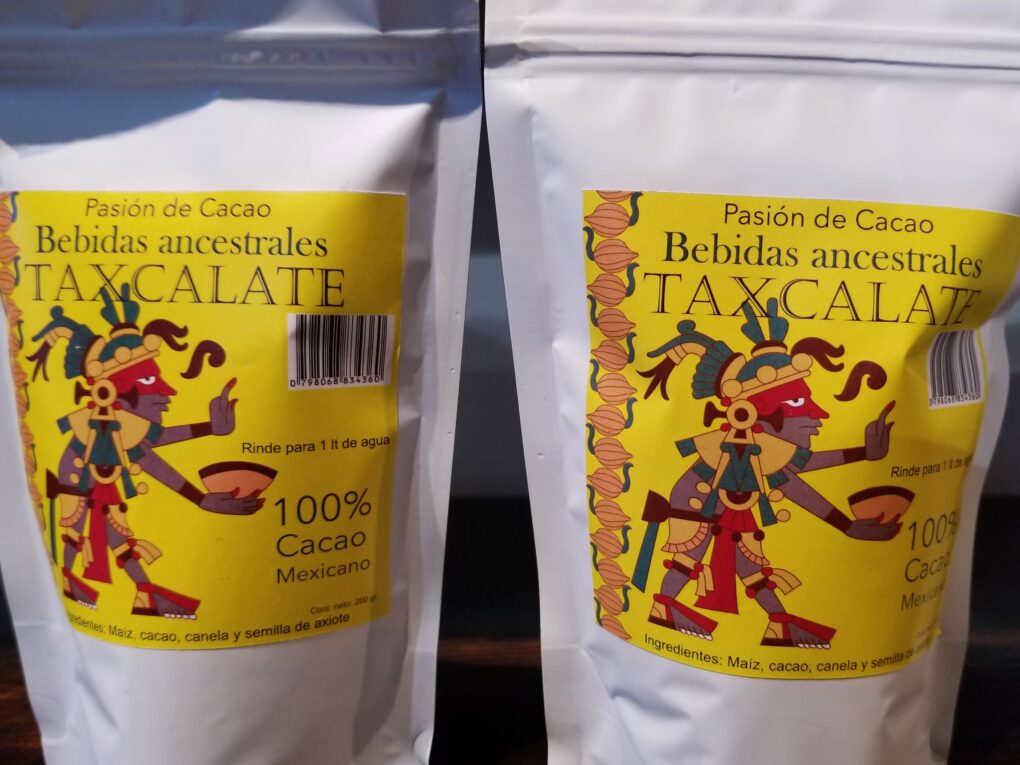
Mexican Cacao & Chocolate
Cacao has been grown and consumed in Mexico for thousands of years. Evidence of this remains on vessels dug from the soil, and researchers have even discovered types of cacao growing in Mexico that are unlike any found elsewhere.
Reaching even deeper into the past, cacao was so important to the Mesoamerican peoples that it was used as currency and ground into ceremonial beverages consumed at weddings, funerals, and even ritual sacrifices. In the late 1600s, the Spaniards brought this native Mexican cacao to the Philippines, which was by then also a Spanish colony.
Throughout history, no matter where it was brought, the dominant way in which chocolate was consumed was as an unsweetened beverage that doesn't remotely resemble the sweet milky drink we think of these days. The history of cacao and chocolate in Mexico is complex, as it weaves through trade routes, slavery, and culinary heritage, but also multigenerational livelihoods, as with Roberto and his cousin.

Yet throughout the 2000's, Mexican cacao production remained in steep decline. Even in recent years, most domestic cacao has been weakly-processed and sold in bulk, because processors in Mexico are required to buy up the local harvest before they can import foreign cacaos.
This keeps prices relatively high, which has caused a slight uptick in production recently, but many farmers are still looking for ways to increase the value of their outputs. However with this better processing comes higher prices, and there are still very few companies willing to pay the premium for this quality.
In Mexico, 'chocolate' has become a favorite flavoring for sugar and milk, as it has most everywhere else in the world. But several chocolate makers are working to offer better options, both in terms of sugar and milk as well as for the farmers.
This all comes at a time when incidences of food allergies are spiking, and interest in regional cultural heritage remains on the rise.

Bean to Bar Chocolate in Mexico
As of publication, the only other chocolate shops in Cancun are one location of Ah Cacao, a local chocolate café chain, and a few made-for-tourists chocolate museum experiences. But here's why you should bypass them all and check out PDC instead: there are a multitude of options for learning about how chocolate is made, but the gap lays in the quality of materials.
If you use low quality cacao, like you'd source from most farms around the world, the chocolate made from that will taste flat and bitter, and you'll leave that workshop with the impression that that's what 'real chocolate' tastes like. Right now in the Yucatan and throughout Mexico there's just no incentive to spend the extra time on careful processing when you have a guaranteed purchase price, and cacao requires a lot of care to taste great.
But small craft chocolate makers like at Pasión de Cacao and Cancun's Ki'Neek' Chocolate are trying to change this dynamic by sourcing cacao directly from farmers, and paying extra for proper post-harvest processing. Such farming operations are often a family business, as is chocolate making, and while a very small number of families are choosing to do both, it's definitely a rarity.
One of the few is Wolter Chocolates in Tabasco, the chocolate brand for family-owned Hacienda La Luz, now in its third generation of tree to bar chocolate making. They've been at it since the 1950's, and farming cacao for much longer.
And after all this time, finally even the government is taking notice, as Mexico has been investing in the revival of its cocoa sector for about a decade now. In pursuit of this they've been enlisting the help of cacao & chocolate experts like my friend Clay Gordon of The Chocolate Life, who actually introduced me to Wolter Chocolates.
Clay is also the one who introduced me to Roberto, and he's one of the few people I know who've been to the wildly popular Festival del Chocolate Tabasco. As the country's main cacao-growing region, Tabasco remains a large source for most Mexican chocolate makers, Roberto included.
Though after a few wins from the International Chocolate Awards, he's now working with two other unique origins from southern Mexico.

Pasion de Cacao in PDC
With the help of a small team of employees in the Riviera Maya, Roberto's also working to very slowly expand his product line. At the moment the selection seems to cover every possible use for every part of the cacao fruit.
When we came in for a tasting, we were astounded by the number of variables he's chosen to play with. From the beginning he chose not to use milk or wheat products and to largely stay away from nuts, but even with those parameters his offerings range greatly.
When we arrived he was still tinkering with a rainbow-filled chocolate bar (almond mylk white chocolate), and shared with us which products were the fan-favorites— spicy chocolate shot glasses and chocolate-covered rice crispies.
It was really only after trying every product they have on offer that the shop's name sunk in. The focus is on the cacao, not on only making chocolate out of it. Just one element of cacao becomes the star in each item, be it in the form of roasted nibs, just the fat, or the unique flavor notes blended with local chiles.


At the moment only one type of chocolate is sugar-free, but all his products are allergen-friendly (certification pending), vegan, and locally-sourced. He even goes to the market himself to buy the oranges for their candied orange rinds!
Every little detail of the shop is cacao-themed, from the cacao pod stickers bordering the area above the workshop entrance to the dried cacao beans around the bathroom mirror. He even has little metates you can buy.
Everywhere you look there's Mayan influence, from the corner setup to demonstrate how chocolate was originally prepared to the brand's own logo. Roberto even has a tattoo of the logo on his forearm, which depicts a filled outline of a monkey looking at a cacao pod.
He explained to us that the design is an homage to the Mayan legend that it was a monkey which first disseminated cacao to the humans, by scattering the seeds and allowing the trees to grow.

As for the future, Roberto's hope is that PDC will play a role in the blossoming of industry of Mexican chocolate, made in Mexico. He's even been collaborating to establish national "free-from" goals for allergen warning labels, and working locally to increase the proportion of directly-traded cacao within Mexico.
Pasión de Cacao is part of a small but quickly-growing network of Mexican bean to bar chocolate makers, and is by far the best chocolate shop in Playa Del Carmen. And this isn't just my opinion.
My family & I stayed in Roberto's shop for about two hours, chatting with him for quite awhile before he had to leave to curate a tasting. Just before we ourselves left, a Nordic couple who apparently lives nearby stopped in to pick up some cocoa butter and a bag of 100% chocolate.
They told us they've been buying their "morning chocolate" from Roberto for years, and declared it the "purest and best stuff" you can get in the region. From my experience, I'd have to agree.

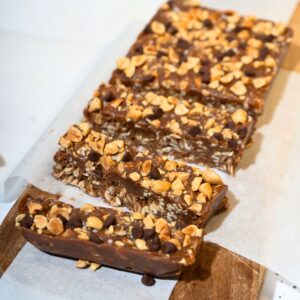
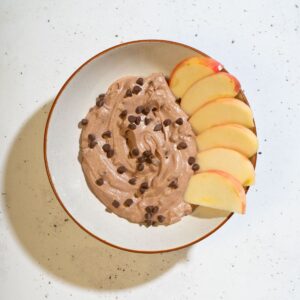


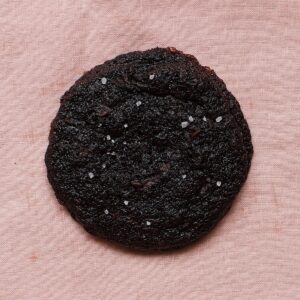





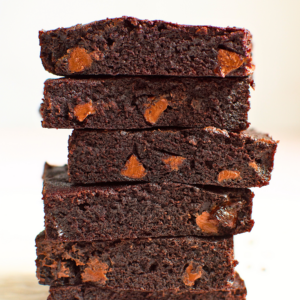

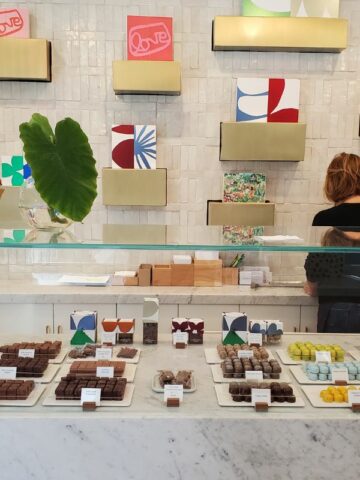


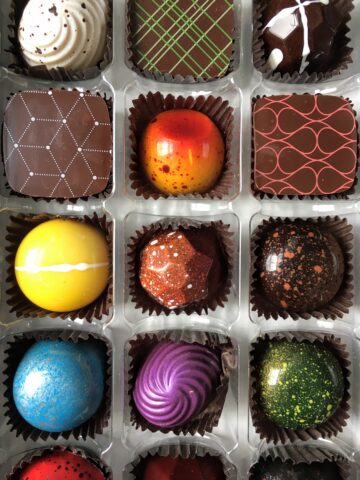
Comments
No Comments